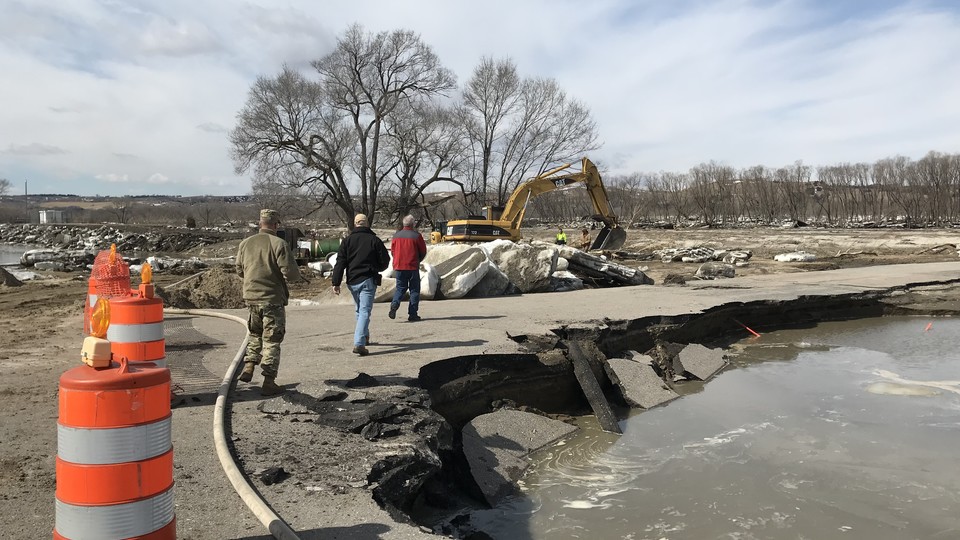
The University of Nebraska-Lincoln’s Extension and Public Policy Center are assisting in the coordination of flood cleanup and recovery in Nebraska.
Extension Educator Ashley Mueller, who specializes in disaster preparedness and relief, began organizing the flood response in Fremont almost immediately after floodwaters breached the city’s levee system, and was integral to establishing the volunteer reception center at Clarmar Elementary School. Ryan Lowry, a research specialist with the Public Policy Center who also has expertise in disaster response, and Julie Nickel, administration support specialist with the center, assisted in the effort.
The response has been staggering, as more than 1,100 volunteers have registered, and the reception center has been moved to St. Patrick’s Catholic Church. More volunteer reception areas will likely open in many of the 79 counties affected by the flood, Mueller said, as communities begin to grapple with the damage.
Lowry and Mueller were trained in managing disaster volunteers by the Corporation for National and Community Service, and have taught classes on disaster response across the state. One of the topics they always cover is volunteer organization, because it is so important.
Lowry stressed that individual volunteers and organizations must register with the county or community where they are volunteering for safety reasons, and to help offset costs for the communities. Lowry explained that once a presidential disaster declaration is made — which President Trump approved March 21 — the federal government may provide 75 percent of eligible assistance, while the rest is split between state and local funding.
“Tracking volunteer hours really helps when a community is coming out on the other side of the disaster,” Lowry said. “Each volunteer hour has monetary value, which offsets that 12.5 percent the community or county has to pay.
“It helps take some of the financial burden off the community.”
At the State Emergency Operations Center with the Nebraska Emergency Management Agency, Quinn Lewandowski, State Citizen Corps program coordinator for PPC, is serving as the Voluntary Agency Liaison. He said dozens of organizations are contacting the state offices to offer help, and that the recovery process is just beginning. Lewandowski said the state needs volunteers and they will play a large role in the months ahead.
“After the waters recede and we move from the response phase to the recovery phase, volunteers make a gigantic difference,” he said. “There’s a lot to be done, and those volunteers renew hope for people who’ve lost so much.”
Lowry said that if a person wants to help, but can’t volunteer physically, monetary donations are best, as sorting and delivering items can be an extra burden for disaster response teams and volunteers.
“Funds can be used for everything from finding housing when shelters are full to feeding first responders and volunteers,” he said.
Learn more about flood recovery, volunteering and how to assist through donations.
Courtesy Nebraska Today